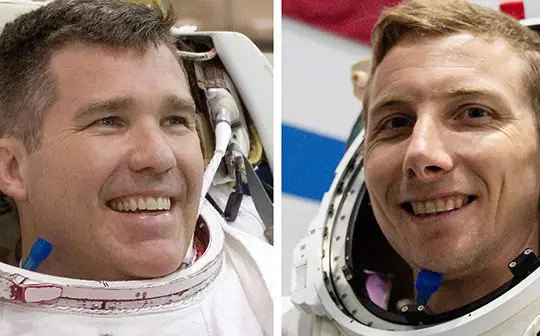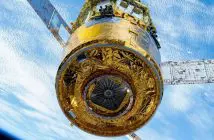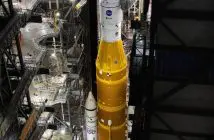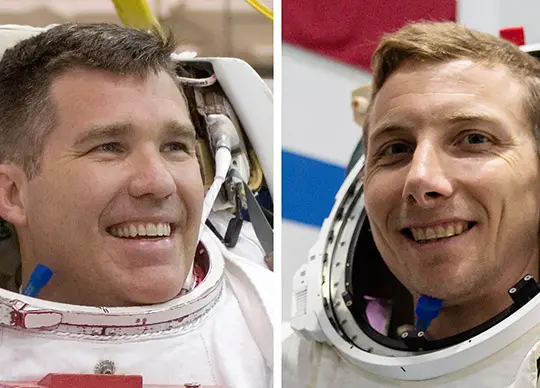
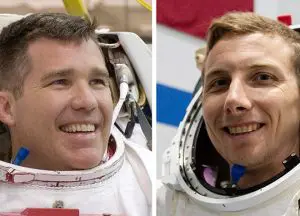
Image: NASA crew members of the agency’s SpaceX Crew-6 mission to the International Space Station. Pictured from left are NASA astronauts Stephen Bowen and Woody Hoburg. Credits: NASA.
NASA has assigned two crew members to launch on the agency’s SpaceX Crew-6 mission – the sixth crew rotation flight aboard a Crew Dragon spacecraft to the International Space Station.
NASA astronauts Stephen Bowen and Woody Hoburg will serve as spacecraft commander and pilot, respectively, for the mission. The agency’s international partners will assign additional crew members as mission specialists in the future.
The mission is expected to launch in 2023 on a Falcon 9 rocket from Launch Complex 39A at NASA’s Kennedy Space Center in Florida. Bowen, Hoburg, and the international crew members will join an expedition crew aboard the space station.
This will be Bowen’s fourth trip into space as a veteran of three space shuttle missions: STS-126 in 2008, STS-132 in 2010, and STS-133 in 2011. Bowen has logged more than 40 days in space, including 47 hours, 18 minutes during seven spacewalks. He was born in Cohasset, Massachusetts. He holds a bachelor’s degree in electrical engineering from the United States Naval Academy in Annapolis, Maryland, and a master’s degree in ocean engineering from the Joint Program in Applied Ocean Science and Engineering offered by Massachusetts Institute of Technology (MIT) in Cambridge, Massachusetts, and Woods Hole Oceanographic Institution in Falmouth, Massachusetts. In July 2000, Bowen became the first submarine officer selected as an astronaut by NASA.
Hoburg was selected by NASA as an astronaut in 2017 and this will be his first trip to space. He is from Pittsburgh and earned a bachelor’s degree in aeronautics and astronautics from MIT and a doctorate in electrical engineering and computer science from the University of California, Berkeley. At the time of his selection as an astronaut, Hoburg was an assistant professor of aeronautics and astronautics at MIT. Hoburg’s research focused on efficient methods for design of engineering systems. He also is a commercial pilot with instrument, single-engine, and multi-engine ratings.
NASA’s Commercial Crew Program works with the American aerospace industry to provide safe, reliable, and cost-effective transportation to and from the International Space Station on American-made rockets and spacecraft launching from American soil.
For more than 21 years, humans have lived and worked continuously aboard the International Space Station, advancing scientific knowledge and demonstrating new technologies, making research breakthroughs not possible on Earth. As a global endeavor, 244 people from 19 countries have visited the unique microgravity laboratory that has hosted more than 3,000 research and educational investigations from researchers in 108 countries and areas.
The station is a critical testbed for NASA to understand and overcome the challenges of long-duration spaceflight and to expand commercial opportunities in low-Earth orbit. As commercial companies focus on providing human space transportation services and developing a robust low-Earth orbit economy, NASA is free to focus on building spacecraft and rockets for deep space missions to the Moon and Mars.

